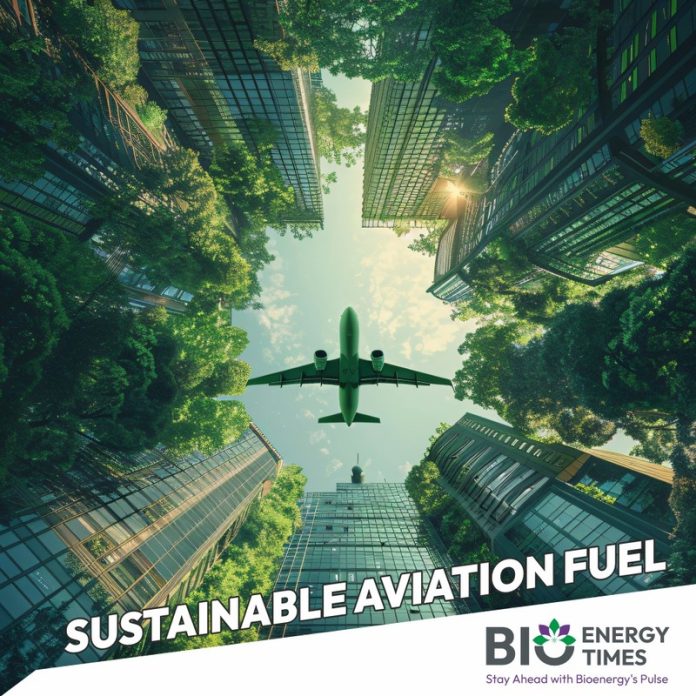As the demand for sustainable aviation fuel (SAF) is projected to grow tenfold by 2030, Universal Fuel Technologies (Unifuel) has secured $3 million in funding for its innovative Flexiforming technology. This breakthrough technology has the potential to reduce SAF production costs by up to 50% and carbon emissions by as much as 75%. The seed funding round, led by TO VC and supported by Alchemist Accelerator, Claire Technologies, and World Star Aviation, will enable Unifuel to advance its proprietary Flexiforming process and establish lab facilities in Texas for SAF sample production.
Flexiforming utilizes a series of chemical reactions to convert various renewable materials, including byproducts from other SAF production methods, into high-quality SAF that is chemically similar to traditional jet fuel. This positions it as a viable option for a fully synthetic jet fuel compatible with existing aircraft.
“Current SAF production faces challenges related to feedstock availability and cost, both of which are addressed by Unifuel’s Flexiforming technology,” said Joshua Phitoussi, managing partner at TO VC. “Unifuel has developed a more efficient method that significantly reduces costs while maximizing limited resources. The flexibility of their feedstock allows them to explore multiple SAF pathways and collaborate with leading players in those areas. This innovative approach is crucial for achieving net-zero emissions by 2050, making Unifuel a valuable addition to TO VC’s portfolio aimed at sustainable energy transitions.”
Unifuel’s Flexiforming technology can transform a variety of sustainable materials—such as ethanol, methanol, and liquefied petroleum gas (LPG)—into high-quality fuels and chemicals, including SAF. It facilitates an ethanol-to-jet (ETJ) process at about half the cost of existing ETJ methods. Moreover, Flexiforming complements traditional SAF production processes by upgrading low-value byproducts, enhancing revenue opportunities for producers and optimizing the use of available raw materials.
For instance, most SAF currently produced through HEFA (hydrotreated esters and fatty acids) technology relies on sources like used cooking oil or animal fat, generating around 20% low-value byproducts such as naphtha and LPG. Flexiforming efficiently upgrades these byproducts into high-value SAF, increasing profitability for producers and boosting market availability of SAF.
A key advantage of Flexiforming is its ability to produce the aromatic molecules essential for optimal performance in jet engines and other aircraft systems. Modern jets are designed to function with traditional jet fuels containing a specific ratio of these molecules, making their inclusion crucial for developing drop-in-ready SAF. Unlike other methods, such as HEFA and Fischer-Tropsch, which produce basic fuel components, Flexiforming enables the creation of fully synthetic jet fuel that airlines can use without needing to blend with conventional fuel once 100% SAF receives ASTM International approval.
“Sustainable aviation relies on creating SAF that is both cost-effective and compatible with the current aviation infrastructure,” stated Alexei Beltyukov, CEO of Universal Fuel Technologies. “With Flexiforming, we empower SAF producers to produce affordable, high-quality fuels that meet the performance requirements of aircraft, while also allowing them to scale according to their capabilities. We are excited to have investors who recognize the market gap we aim to fill and who will support our efforts to make low-cost, drop-in-ready SAF a reality.”
With over a decade of research and extensive testing behind it, Unifuel is now ready to enter the ASTM clearinghouse for SAF certification following the closure of its seed funding round. The company is set to leverage its new lab to further demonstrate its technology and expand its customer base.
To read more about Sustainable Aviation Fuel Industry News, continue reading BioEnergyTimes.com















